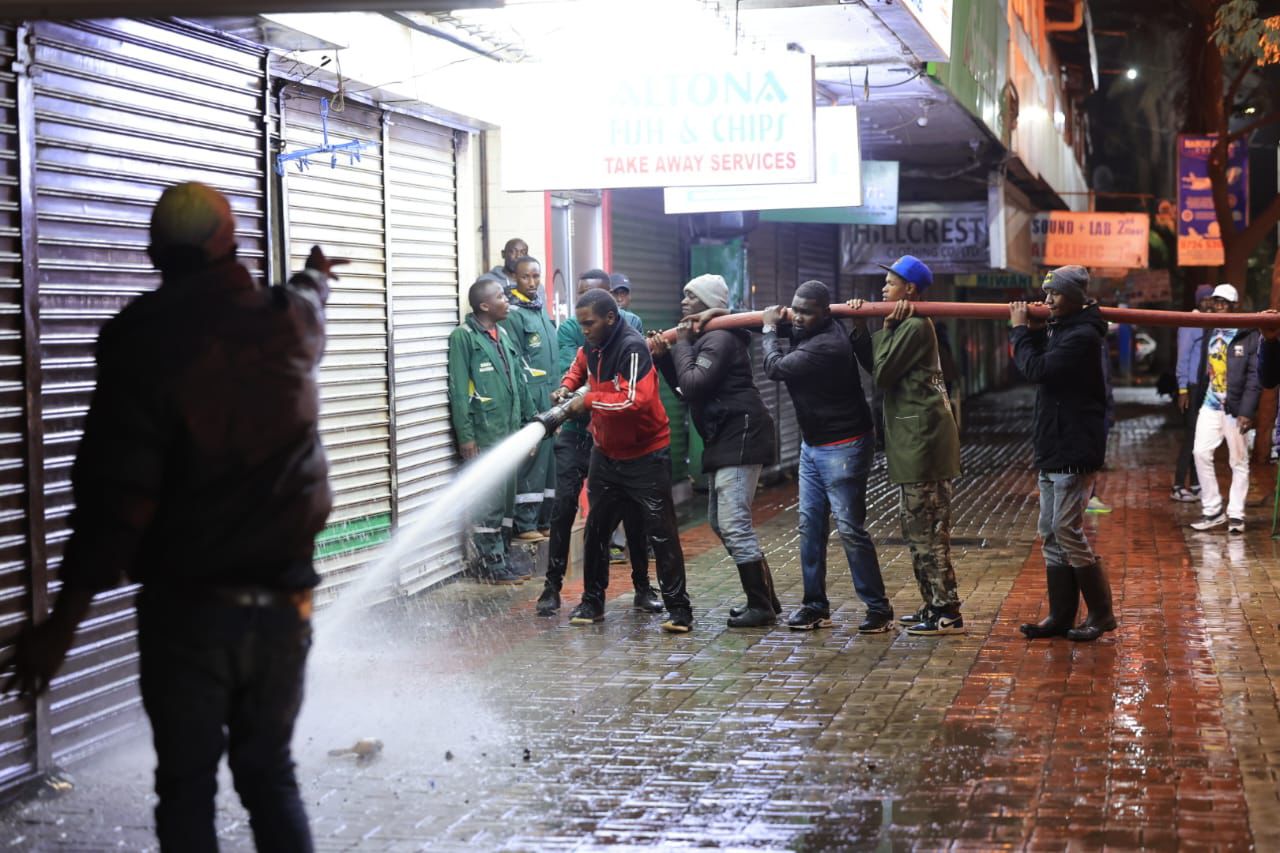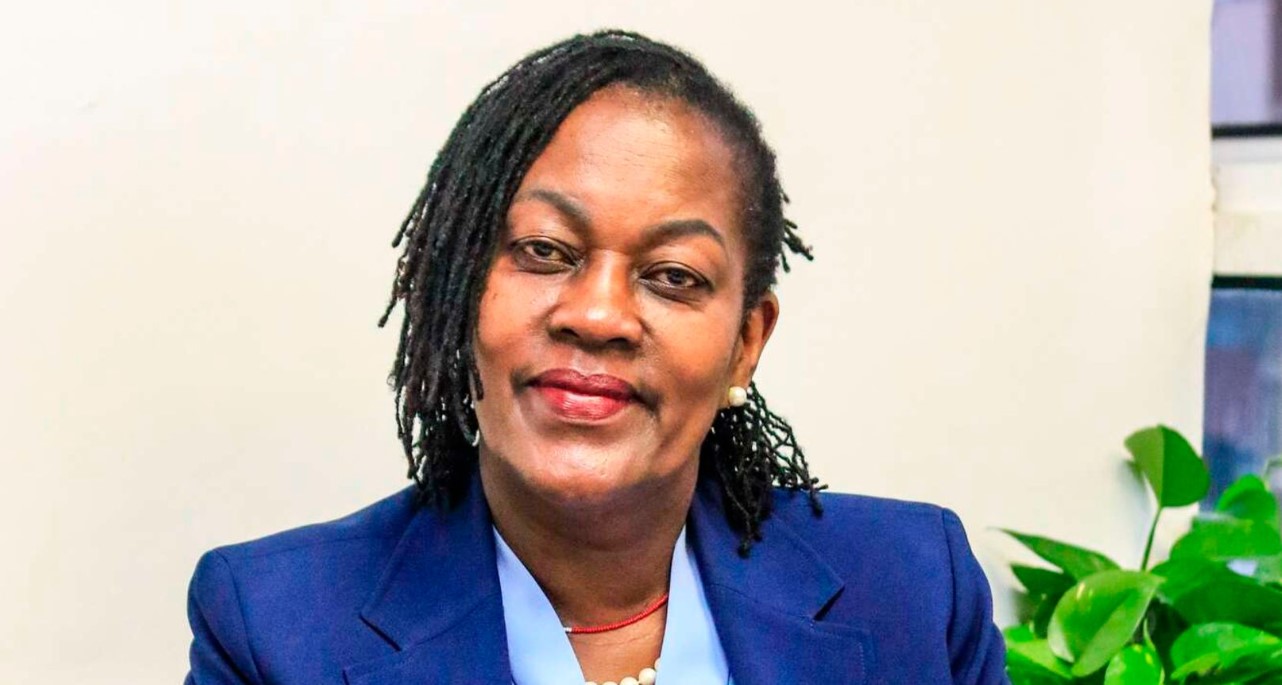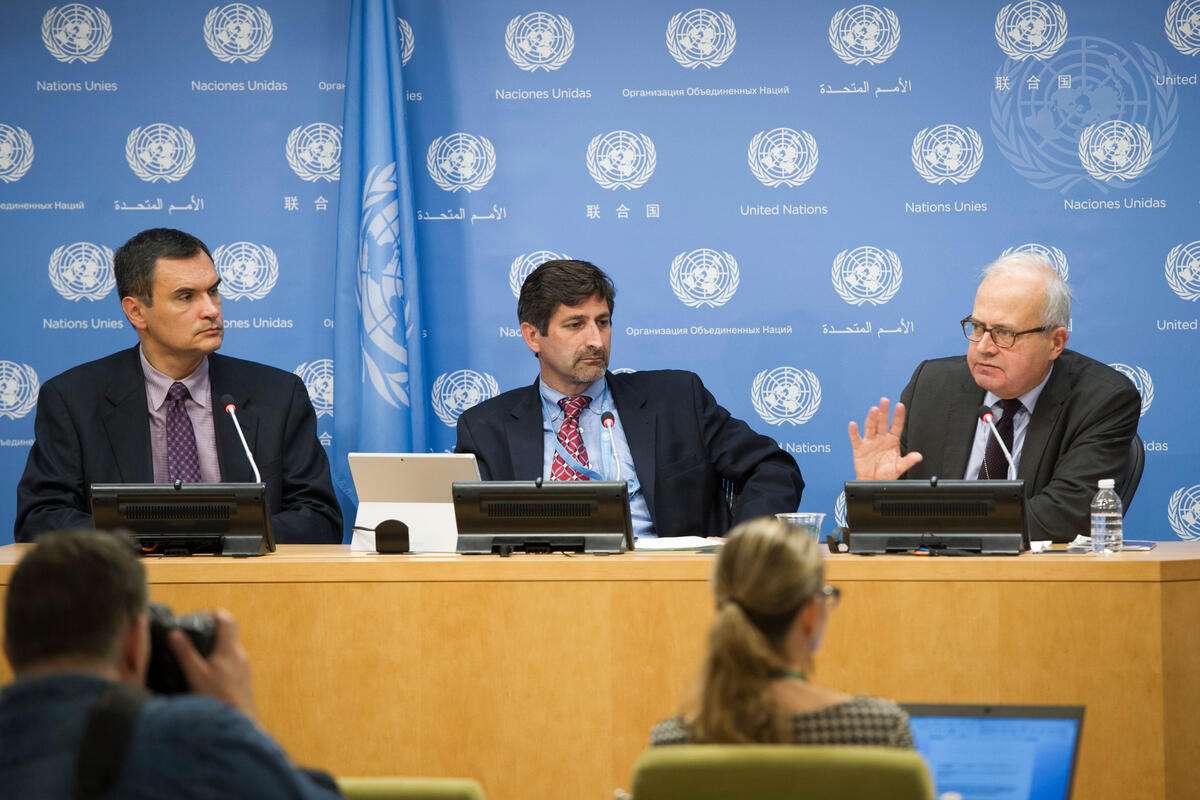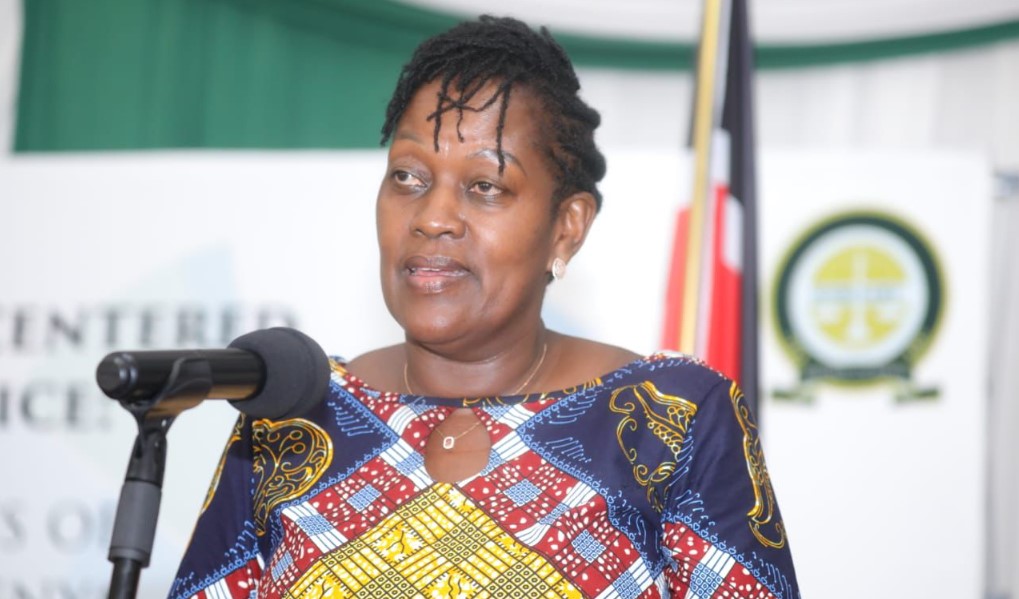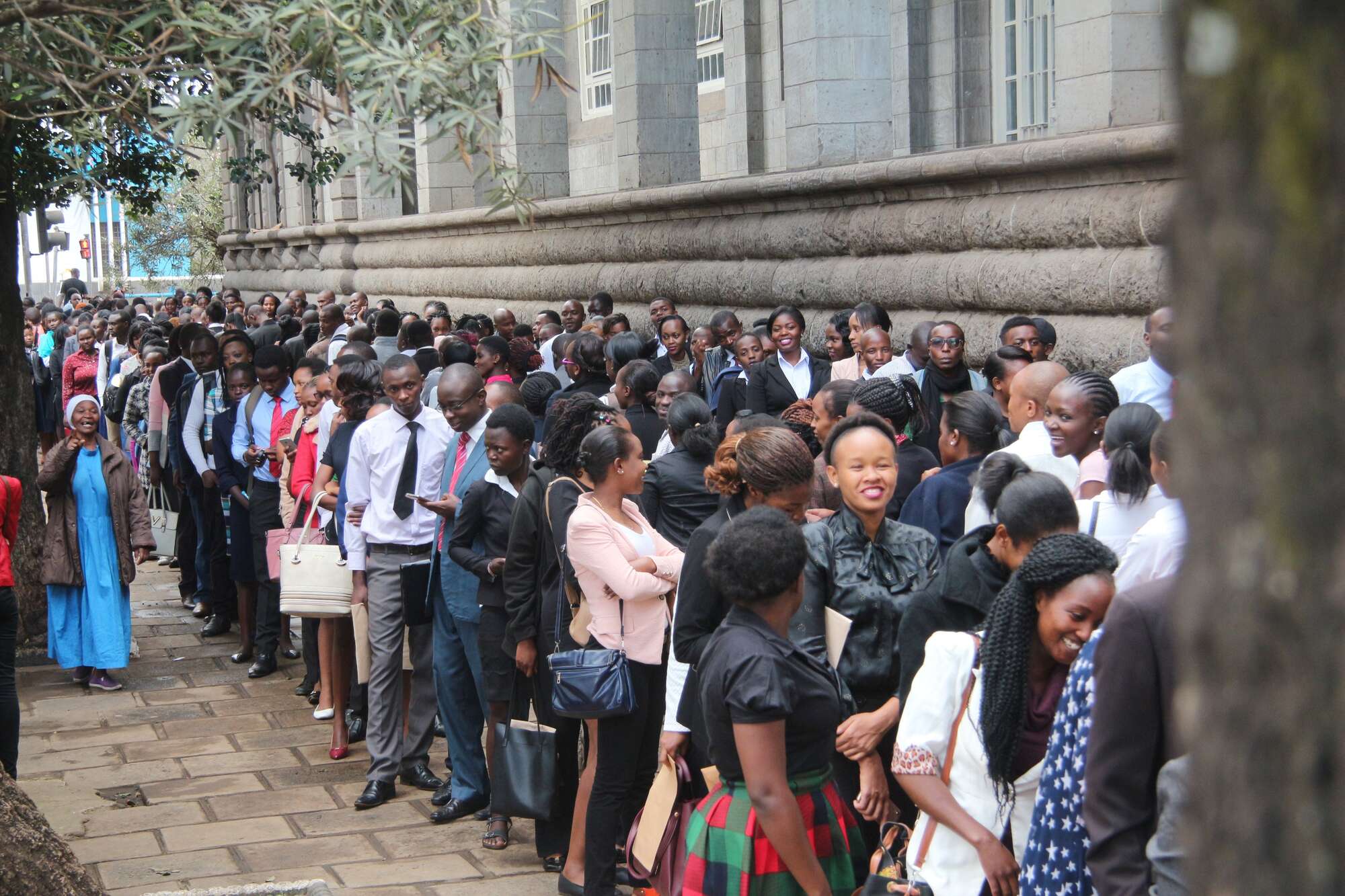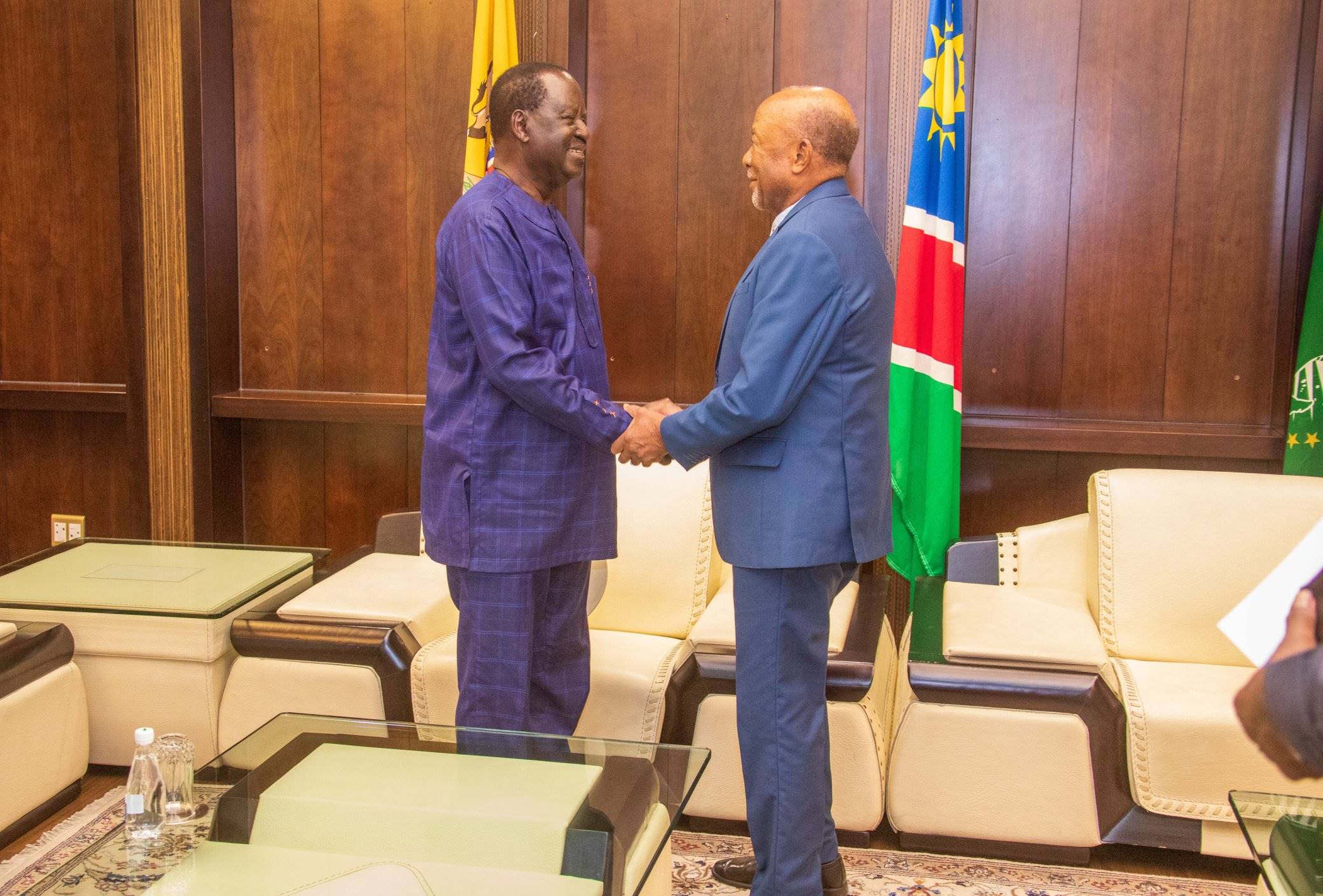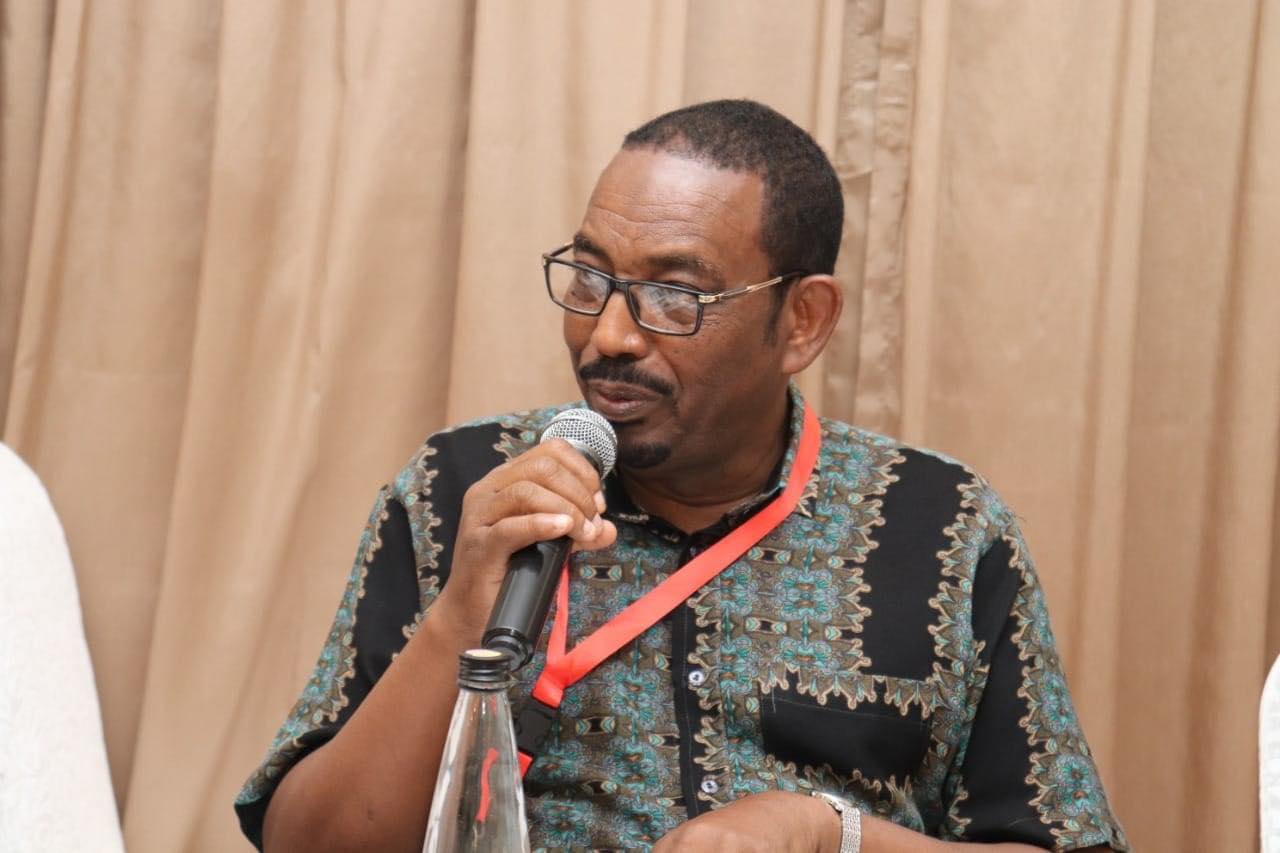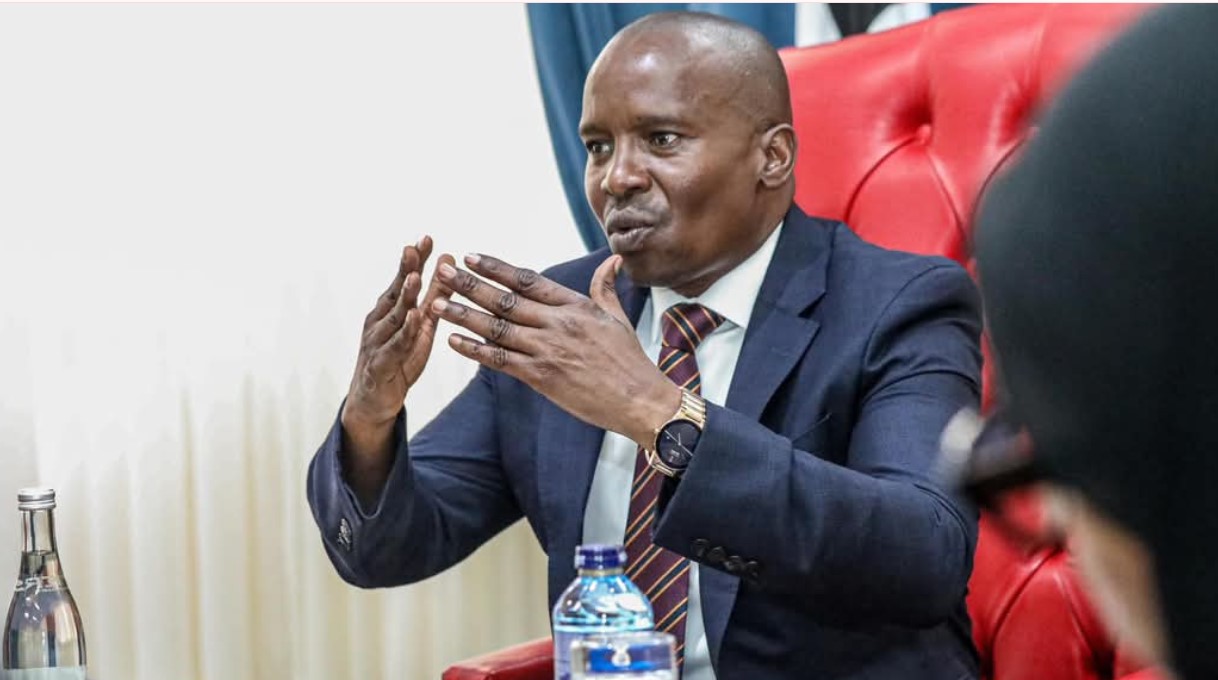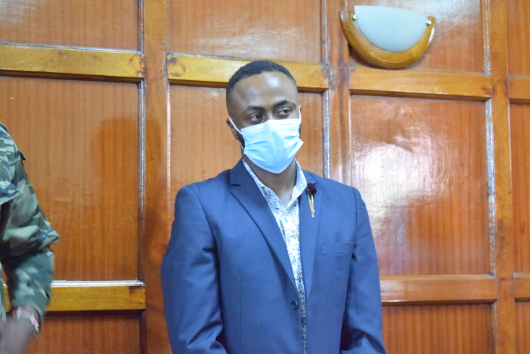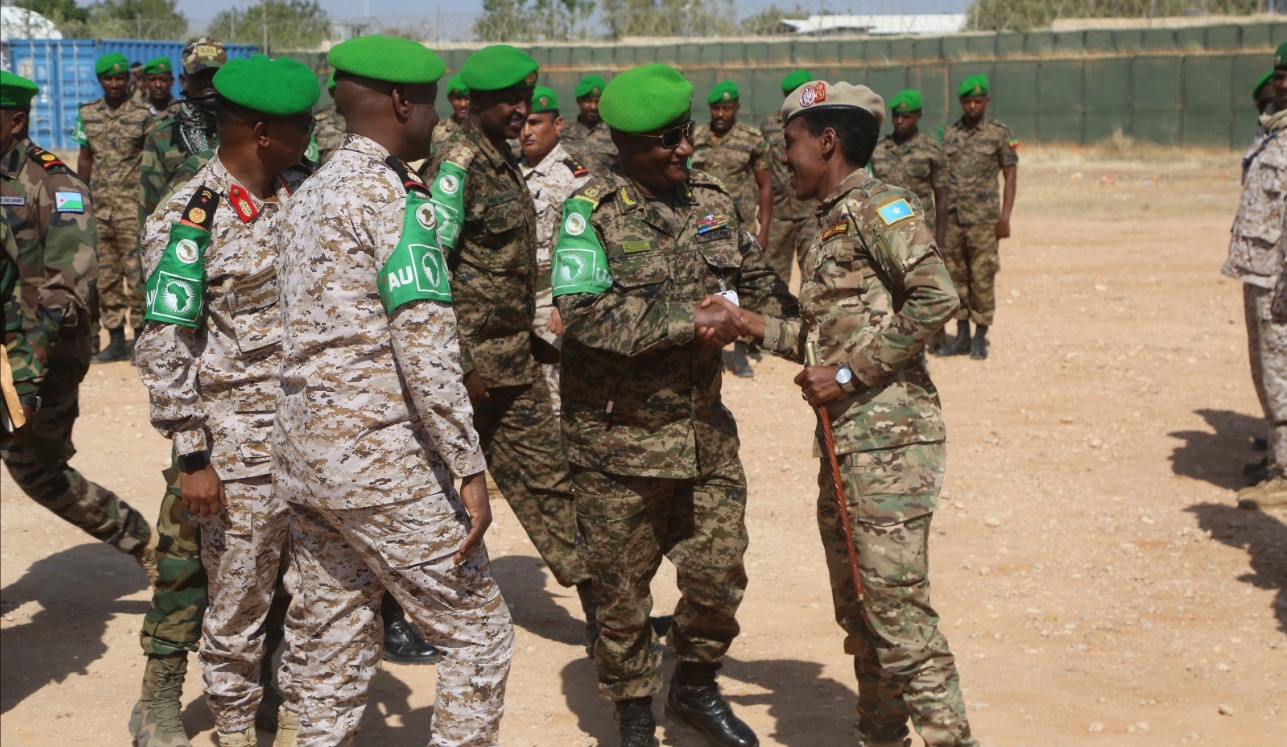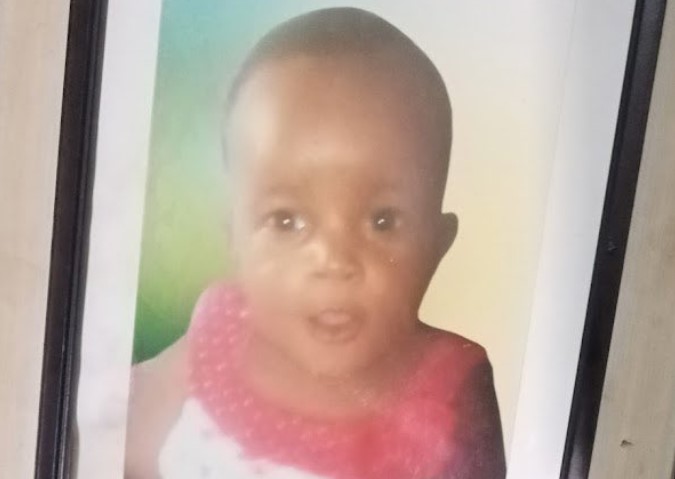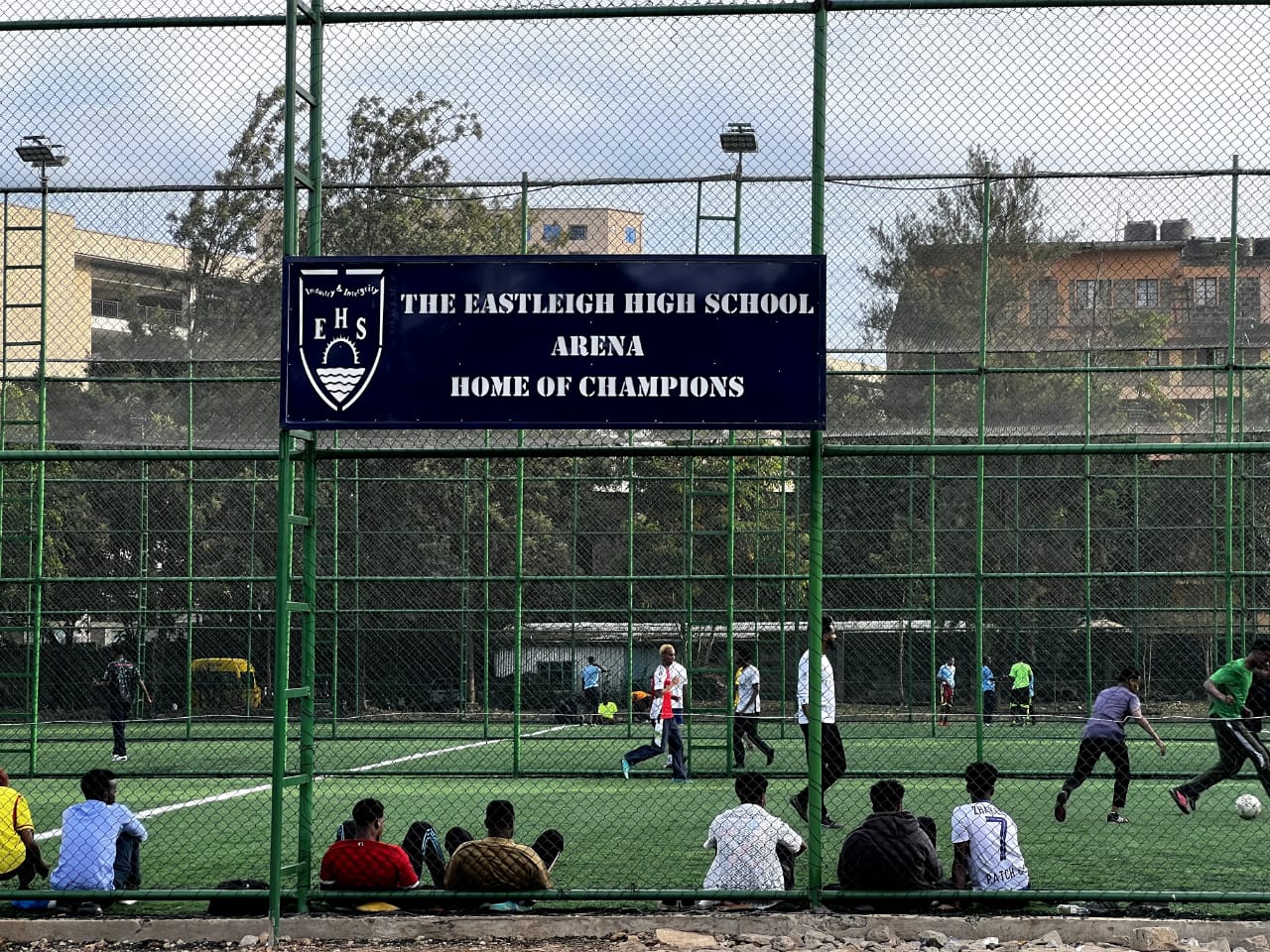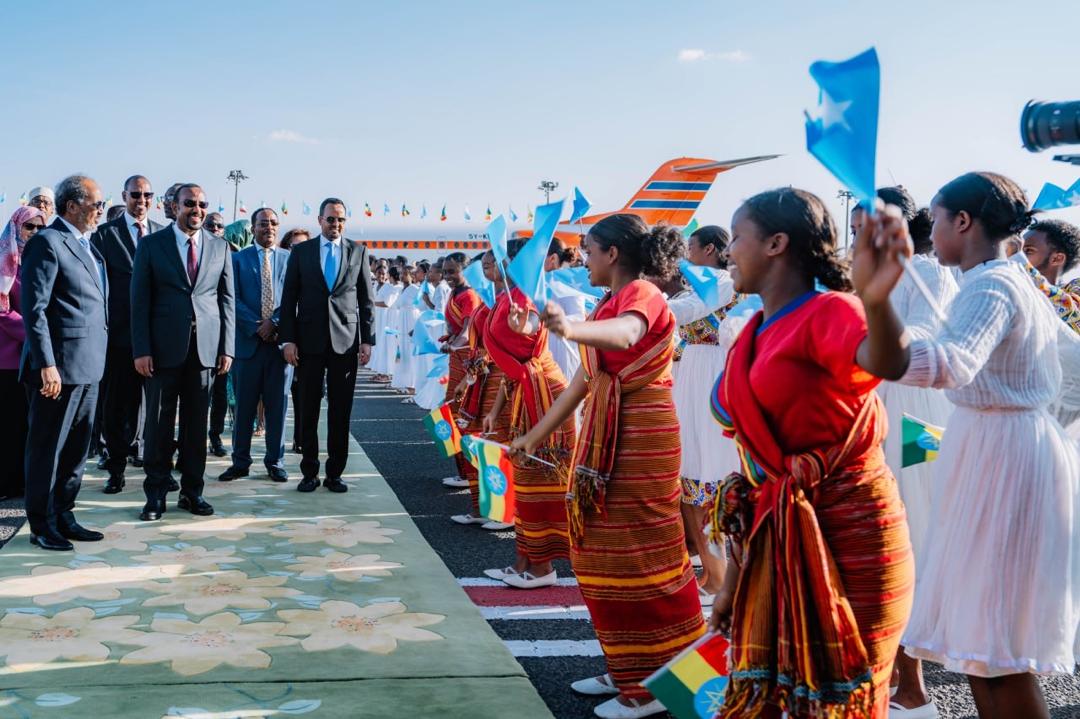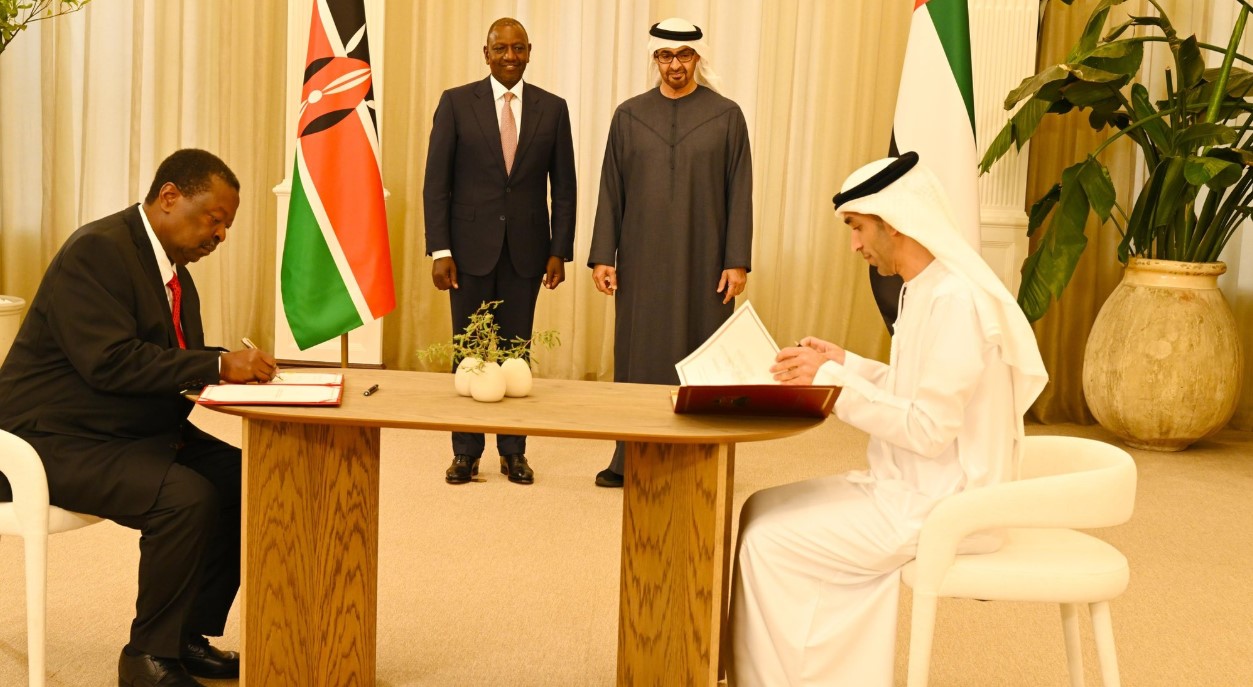South Sudanese peace talks in Nairobi reset after VP Machar's withdrawal
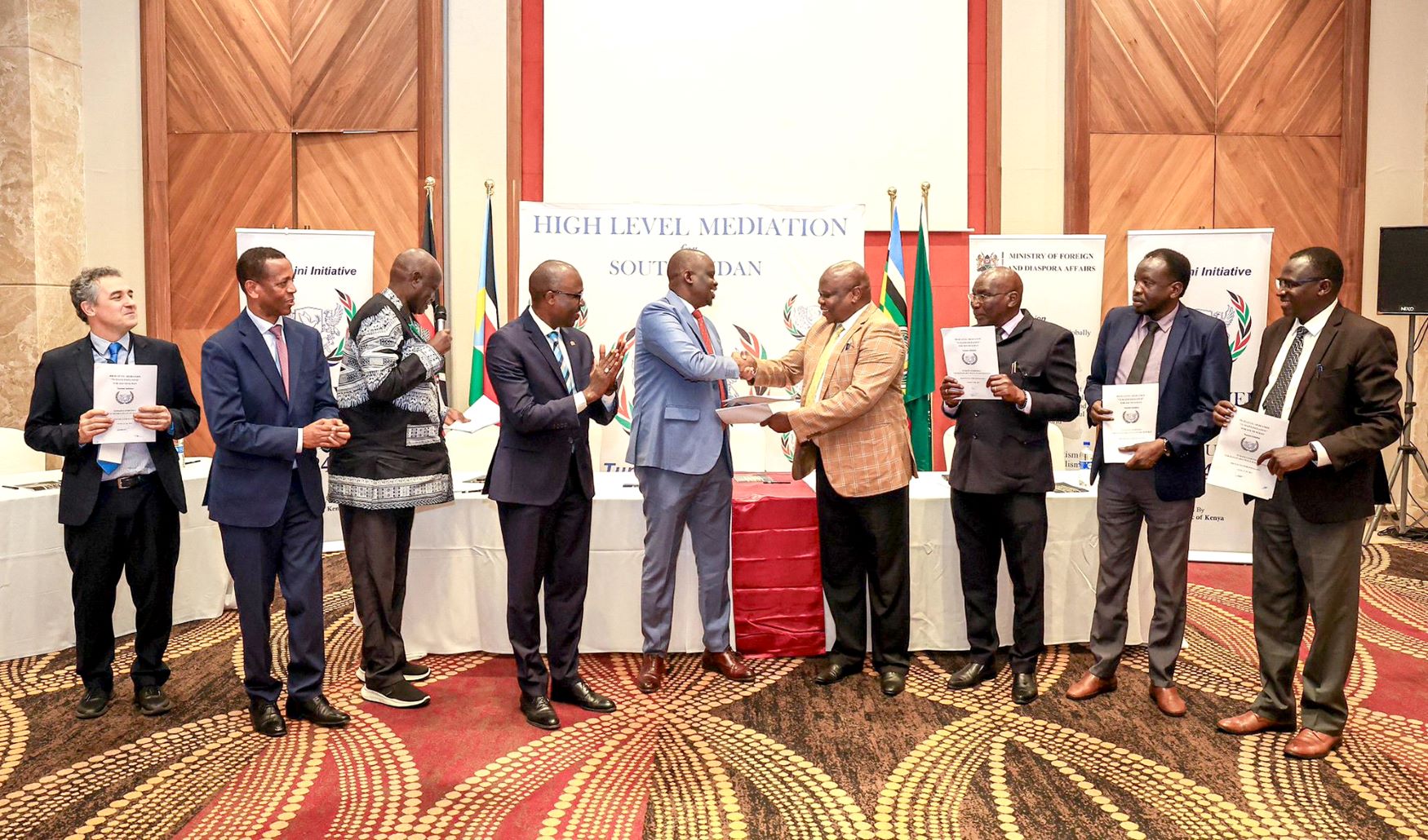
The SPLM-IO's Political Bureau convened in Juba last Tuesday where it unanimously voted to exit the negotiations.
The South Sudanese talks in Nairobi are in jeopardy after Riek Machar, a co-principal of the fragile 2018 peace deal, pulled out days after the signing of the three protocols on humanitarian access, permanent ceasefire and guarantors to the mediation process.
The Kenya-led peace process, known as the Tumaini Initiative, achieved agreements on eight protocols related to the security sector and other areas, marking significant progress in the months-long negotiations.
More To Read
- South Sudan President Salva Kiir overhauls security, administrative leadership amid internal tensions
- Calm restored in Juba after soldiers' clash at ex-intelligence chief's home
- Gunfire in South Sudan capital as forces attempt to arrest former intelligence chief
- South Sudan, Kenya to resume peace talks in Nairobi
These protocols have been under discussion since May during peace talks between the South Sudan government, the South Sudan Opposition Movement Alliance (Ssoma), and other stakeholders.
The SPLM-IO's Political Bureau convened in Juba last Tuesday where it unanimously voted to exit the negotiations.
The opposition faction cited dissatisfaction with the recent protocols, accusing the talks of deviating from their original objectives.
The document seen by The Eastleigh Voice outlines the statement of purpose for Tumaini, preamble, security agreement and ceasefire, addressing communal violence and the proliferation of arms among civilians, and resolutions for land disputes.
Additional protocols cover trust and confidence-building measures, humanitarian access, and the role of guarantors in the peace agreement.
He added, "These frameworks provide a clear foundation for the conclusion of negotiations on confidence-building measures and constitution-making that will ground the governance of our sisterly country," Kenya’s Foreign Affairs PS Korir Sing’oei said on X.
The agreements, collectively known as the Tumaini Consensus, aim to resolve the conflict between the Revitalised-Transitional Government of National Unity under President Salva Kiir, the South Sudan Opposition Alliance, and other opposition groups to achieve inclusive peace in the country.
The ongoing and newly established programmes under the Tumaini Consensus are expected to provide a framework for peacebuilding and democratisation in South Sudan.
The protocol on humanitarian access highlights the commitment to creating an enabling environment for the delivery of humanitarian assistance and protection of vulnerable communities, humanitarian workers, and individuals in South Sudan.
Key measures
Key measures include facilitating and providing humanitarian assistance, strengthening safeguards for returnees and internally displaced persons, and establishing the Special Reconstruction Fund to aid in these efforts.
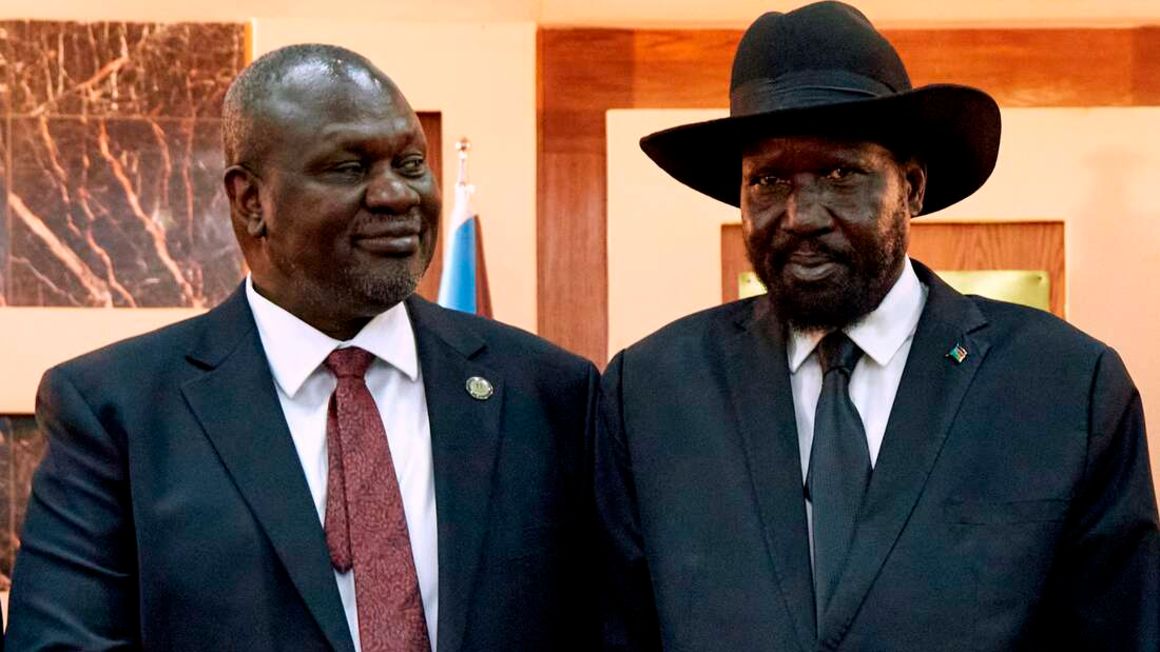 South Sudanese President Salva Kiir (R) with First Vice President Riek Machar at at the State House in Juba, on February 22, 2020, South Sudan. South Sudan rebel leader Riek Machar was sworn in as first vice president on February 22, 2020, formally rejoining the government in the latest bid to bring peace to a nation ravaged by war. Machar has been sworn in following years of civil war between his SPLA-IO and President Salva Kiir’s SPLA, leaving 400,000 South Sudanese dead. (Photo by ALEX MCBRIDE / AFP)
South Sudanese President Salva Kiir (R) with First Vice President Riek Machar at at the State House in Juba, on February 22, 2020, South Sudan. South Sudan rebel leader Riek Machar was sworn in as first vice president on February 22, 2020, formally rejoining the government in the latest bid to bring peace to a nation ravaged by war. Machar has been sworn in following years of civil war between his SPLA-IO and President Salva Kiir’s SPLA, leaving 400,000 South Sudanese dead. (Photo by ALEX MCBRIDE / AFP)South Sudanese President Salva Kiir (R) shakes hands with First Vice President Riek Machar as he ttends his swearing-in ceremony at the State House in Juba,on February 22, 2020, South Sudan. - South Sudan rebel leader Riek Machar was sworn in as first vice president on February 22, 2020, formally rejoining the government in the latest bid to bring peace to a nation ravaged by war. Machar has been sworn in following years of civil war between his SPLA-IO and President Salva Kiir’s SPLA, leaving 400,000 South Sudanese dead. (Photo by ALEX MCBRIDE / AFP)
Participants signed the 23-page document, committing “to the facilitation and provision of humanitarian assistance to those in need of such assistance as a result of previous and current conflicts, natural disasters and other factors”.
Over a decade ago, on July 9, 2011, the people of South Sudan celebrated their independence, marking the birth of the world's newest country.
However, the euphoria was short-lived as civil war erupted soon after, plunging the country into turmoil.
Today, South Sudan faces a devastating humanitarian crisis, with the dubious distinction of having the largest number of refugees on the African continent. The UN Refugee Agency reports that over 2.4 million people have been displaced.
What makes this crisis even more heart-wrenching is that 64 per cent of these refugees are children under the age of 18. This means over 1.4 million young lives are at risk of being neglected, their voices unheard, and their future uncertain.
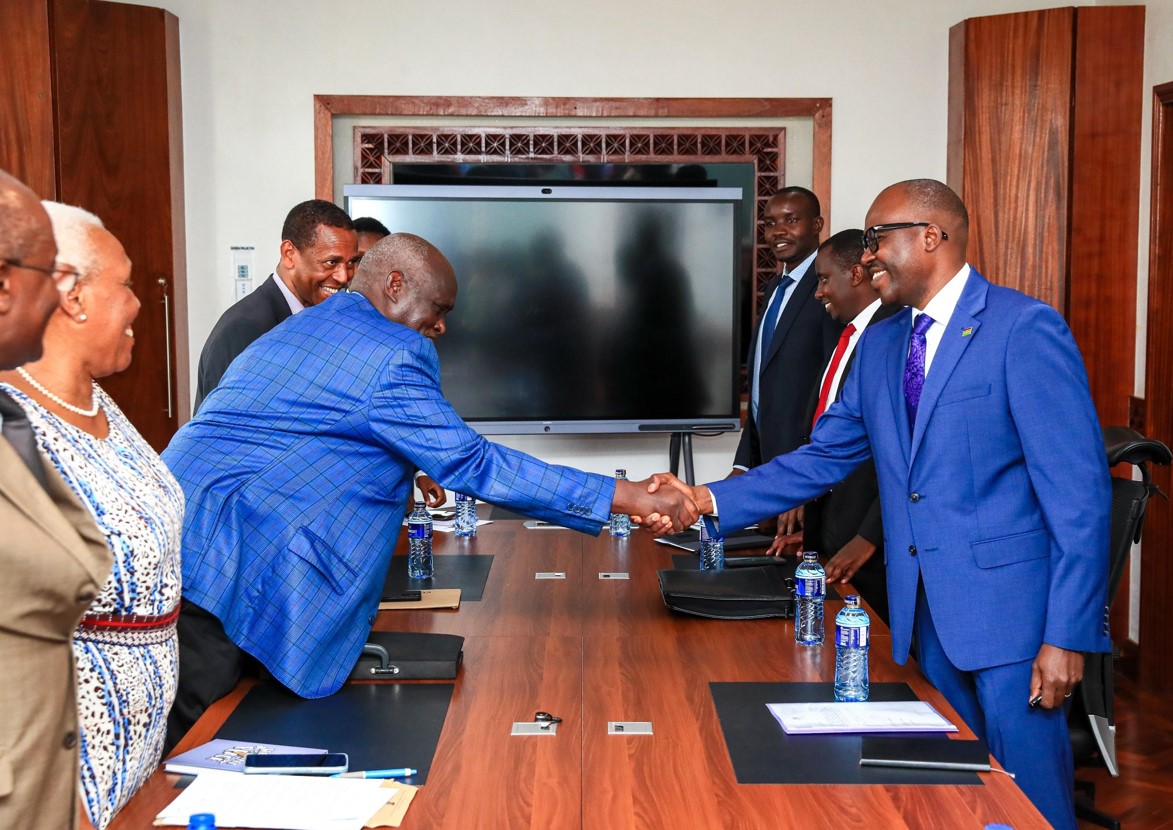 Kenyan Foreign Affairs Principal Secretary Sing'oei Korir shakes hands with Lieutenant General (Rtd) Lazarus Sumbeiywo after a meeting with the South Sudan Mediation Team in Nairobi on April 22, 2024. (Photo: X/Korir Sing'Oei)
Kenyan Foreign Affairs Principal Secretary Sing'oei Korir shakes hands with Lieutenant General (Rtd) Lazarus Sumbeiywo after a meeting with the South Sudan Mediation Team in Nairobi on April 22, 2024. (Photo: X/Korir Sing'Oei)
The protocol on permanent ceasefire, security arrangements, and reforms recommits the parties to the Cessation of Hostilities Agreement of 2017 and outlines the steps towards a permanent ceasefire and security sector reforms.
It includes the unification of forces, the establishment of a Security Sector Reform/Oversight Commission, and the Joint Defence and Security Board. These bodies will oversee the assembly, cantonment, and integration of various armed groups to create unified, professional national forces.
The protocol on trust and confidence-building measures sets forth measures to build trust and confidence among all parties and stakeholders, including the release of political detainees and prisoners of war, repealing restrictive sections of the National Security Act, guaranteeing freedoms of movement, association, and expression, and organising national prayers for peace.
The talks had faced a stumbling block with opposition groups demanding a newly passed bill allowing the detention of people without an arrest warrant dropped before signing the proposed agreement.
Kenya has been hosting high-level meetings since May between government representatives and rebel opposition groups who were not part of a 2018 agreement that ended a five-year civil war that left about 400,000 people dead and millions displaced.
Despite the agreement, violence often erupted in the country of 9 million people.
Pagan Amum Okiech, negotiating on behalf of the South Sudan Opposition Movement Alliance, told The Associated Press last on Tuesday week that it would be “meaningless to sign any agreement if the draconian National Security Act is signed into law by the president”.
However, The Eastleigh Voice has authoritatively confirmed that Okiech, who once led a youthful revolutionary group fighting for the liberation of South Sudan, signed the agreement, indicating that the alliance he represents is in agreement with other factions.
Top Stories Today

